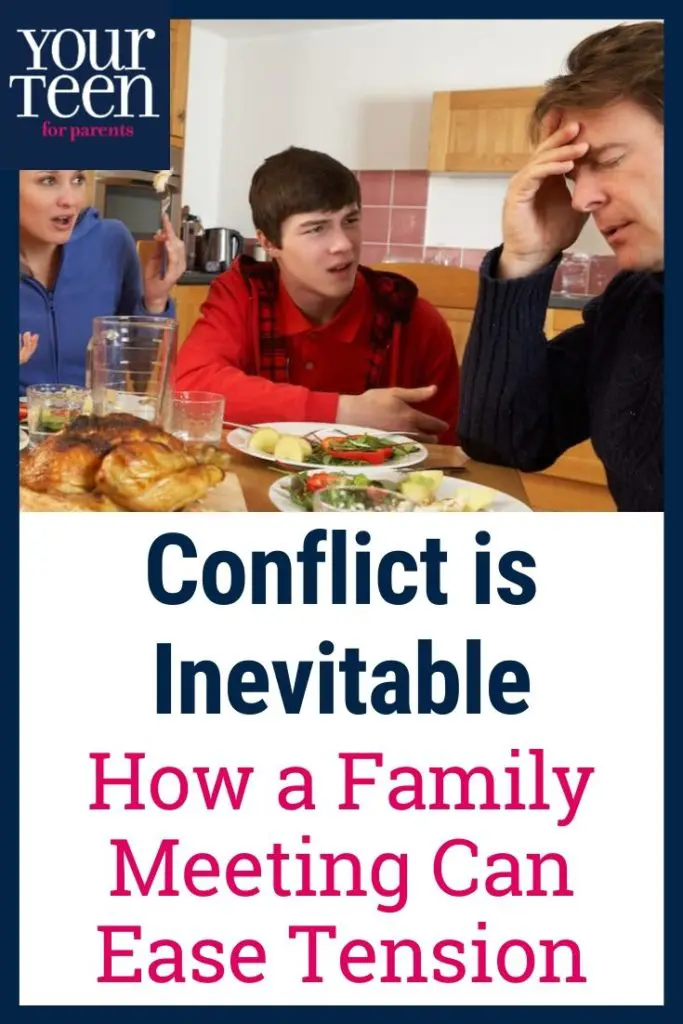Rosalind Wiseman is co-founder of Cultures of Dignity and probably best known as the author of Queen Bees and Wannabes and Masterminds and Wingman. Her recent New York Times article about family meetings offered practical advice about how to work through the tension families experience.
| [adrotate banner=”169″] |
Q: What prompted you to focus on the family meeting right now?
Wiseman: I have two young men that are 17 and 19. And we’re having some bumps in the road. And I was hearing from a lot of people about conflicts that they were having. It is normal. It’s understandable. Conflict is inevitable when you have people in your house 24/7 that know you the best and know exactly how to get under your skin. Then how do we manage ourselves? Because the thing is, you can’t leave. So you have to figure it out.
Q: You suggest having a family meeting, which would cause eyerolls in my house. How do we call a family meeting?
Wiseman: My mother thinks this article is hilarious because she was really into family meetings when I was growing up and I was really not into them. I was absolutely the queen of the eyeroll.
Don’t wait until you blow up. You don’t want to wait until you’ve completely lost your mind. Then you have to prepare. You have to really think about what you want, what your goals are, what could get you off the rails. You have to create a space to be able to have it in a neutral setting. And nobody can have a phone.
Q: What would the invitation look like? And what if someone doesn’t accept the invitation? Is it mandatory?
Wiseman: That’s a good question and something that I actually have personal experience with as a parent. It’s understandable to fear that one of your kids says, “I don’t want to do it. There’s no point.” If I got that response, I would say, “OK, well, let’s not have a family meeting right away. But actually, one of the things I want you to think about and then talk to me about is why do you think there’s no point?” Give them a minute or two minutes to say exactly what it is that they’re so frustrated about. And don’t interrupt them. Maybe they don’t have faith in the process.
Q: Is there a timer? Does everybody know that they get two minutes and then when the timer goes off, it’s the next person’s turn?
Wiseman: You can have people ask clarifying questions on the other side, but you have to really be clear about what a question is, because people are really, really good at asking questions that aren’t really questions like, “Why would you ever think that?” just to get under each other’s skin. There is a difference between a curious question and an undermining question. And being able to distinguish between the two is an important life skill. A curious question shows that you’re listening carefully to the other person. A question that makes someone feel stupid, makes them feel like their words aren’t being respected or they’re not being treated with dignity undermines the entire process.
Q: You’re coming to the table already kind of defensive. You gave the tip to look at a picture of your kids and remember the love you have for them, which I think is brilliant. But how do we get everyone in the family to come with an open heart?
Wiseman: Remember when they’re young, and they would run to you and be so happy when you walked in the door or when you had like a bedtime ritual and you could read them? It’s really important to remember those days because it’s the same kids. Right? It’s your child. And that person is in there somewhere. In the article, I talked about being soft on people and hard on ideas. We can challenge them about what’s happening in our homes, but we need to be soft on them. I do think that holding a good space for everybody is really positive. I want to acknowledge that sometimes there are people in families that have a really hard time in a particular moment feeling like people have the best intentions for them.
Q: What do we want to accomplish at the meeting? What works best and what did the kids tell you they feel like works best when you are sitting in that meeting?
Wiseman: Ask your children if they want to do it and tell them that they can bring a piece of paper and a pen to write down the things that they’re hearing that are the most important from the other person. But I would do that as an invitation: “Look, I know this can be really awkward. I know this can be really cheesy, but we are in a tough spot here. We can either not do anything about this and we just get stuck in the same pattern. Or we try and address the problem. And it’s not going to be perfect. It’s not going to be easy. We’re going to keep going back probably to try and work on this, but we have to somehow address it in the best way we know how to. Otherwise, we just get stuck.” And if one thing good thing happens, then the meeting is a success. It doesn’t have to be like everybody’s truth is heard and everybody gets along really well after that. It just has to be we had an opportunity to actually tell each other what we were thinking when we were relatively calm and there’s some kind of genuine, authentic connection. That’s the way that you get to a place of being able to solve problems.
Q: If the meeting is going poorly, how do we pivot?
Wiseman: Well, I’m pretty sure it’s going to go badly at some point. Someone will get irritated. Your job as a parent is if you see that, then pause. I literally would use the word pause. I’d say, “We made an agreement that when we were going to do this, that we were going to treat each other with dignity, that we were going to treat our words with words. And right now you’re sighing, you’re rolling your eyes, you’re sick. Your body language is totally communicating that you’re not listening to this other person. So I need you to show up differently.” Also, any parent is totally capable of sighing and rolling their eyes. I would also say, “If I do it, I want you to call me out on it. Call me out politely. ‘Hey, Mom, I don’t think you’re taking me seriously right now.’” That can be really uncomfortable for people because it levels the power dynamic between parents and children. But you’re in a relationship and relationships should be treated with mutual respect and dignity.
Q: Is the family meeting a one-time thing?
Wiseman: No. This is an ongoing process. There are going to be segments that you’re going to apply. For example, if you’re frustrated with somebody, you don’t have a big family meeting. But you should be clear about what you’re frustrated about. Before you go speak to that person, you should prepare yourselves so that you’re not falling back into old patterns that you have when you handle conflict.

Recently, at Cultures of Dignity (culturesofdignity.com), we put out these resources called the Tiny guides, which break down a lot of these tools for parents. I think parents are so overwhelmed. They’ve become teachers, administrators, principals and counselors overnight, which is just absurd.





